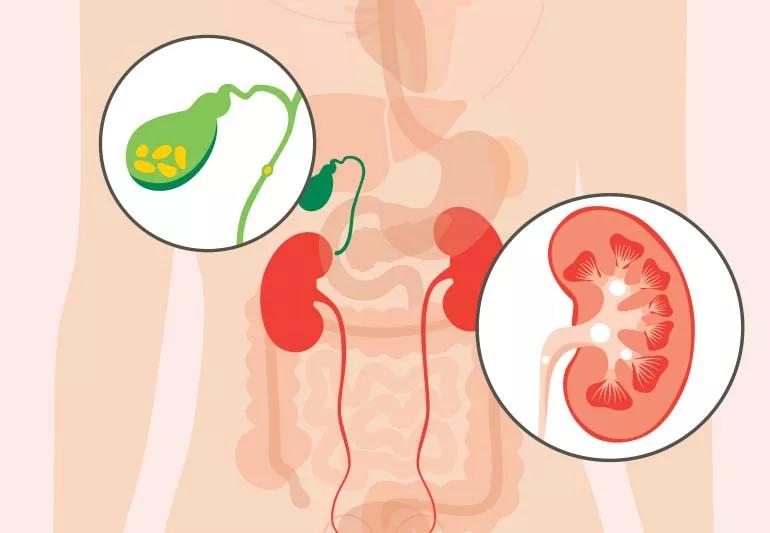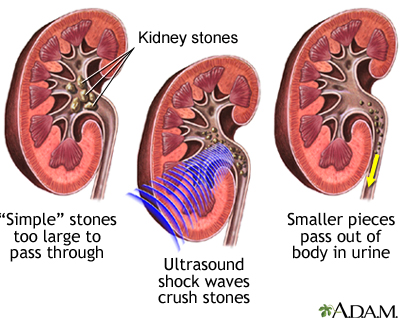Just how to Set Apart In Between Kidney Stones vs UTI: Trick Variables and Analysis Tips
Just how to Set Apart In Between Kidney Stones vs UTI: Trick Variables and Analysis Tips
Blog Article
Discovering the Effects and Causes of Kidney Stones in Comparison to Urinary System Tract Infections: A Comprehensive Guide
The exploration of kidney stones and urinary system tract infections (UTIs) exposes a complex interaction of symptoms and underlying reasons that call for mindful assessment. While both conditions can result in hematuria, they present unique professional attributes and arise from different etiological elements. Understanding the nuances of each condition is crucial for efficient diagnosis and monitoring. What are the essential distinctions in their symptoms, and how might these notify treatment strategies? The solution to these concerns might offer vital insights into the avoidance and treatment of these typical urological problems.
Introduction of Kidney Stones
Kidney rocks, additionally referred to as renal calculi, type when certain compounds in the pee crystallize and aggregate, leading to the development of tough deposits within the kidneys. These stones can vary in size, varying from a grain of sand to a golf ball, and can be made up of various products, the most typical being calcium oxalate, uric acid, struvite, and cystine. The development of kidney rocks is affected by numerous variables, consisting of nutritional habits, fluid consumption, and hereditary proneness.
Signs and symptoms of kidney rocks may include serious pain in the back or side, blood in the urine, queasiness, and regular urination, specifically as the rock relocates through the urinary tract. Medical diagnosis typically entails imaging researches such as ultrasound or CT scans, together with urinalysis to identify the rock's composition.
Therapy alternatives differ based upon the dimension and kind of stone, in addition to the extent of signs (Kidney Stones vs UTI). Small rocks might pass naturally with raised fluid consumption, while larger rocks may need medical interventions such as lithotripsy or surgical removal. Recognizing the pathophysiology and threat aspects connected with kidney stones is necessary for effective avoidance and administration
Introduction of Urinary System Tract Infections
Urinary system infections (UTIs) are usual microbial infections that influence any component of the urinary system, consisting of the kidneys, ureters, bladder, and urethra. They primarily happen when germs, frequently from the stomach tract, enter the urinary system, leading to swelling and infection.
The prevalence of UTIs is especially higher in women than males, primarily as a result of physiological distinctions, such as a shorter urethra. Threat aspects consist of sexual task, specific contraceptive methods, urinary retention, and dehydration. The medical diagnosis of UTIs is usually confirmed with pee examinations, which might expose the presence of microorganisms, leukocyte, or red blood cells.

Symptoms of Kidney Stones
The discomfort connected with kidney rocks can materialize in various ways, often leading people to seek clinical attention. Among the most usual signs and symptoms is severe discomfort, generally local in the lower back or side, which may radiate to the abdominal area or groin. This pain, usually explained as sharp or cramping, can happen unexpectedly and might rise and fall in strength.
In addition, people may experience hematuria, or blood in the urine, which can vary from microscopic total up to visible staining. This sign may be gone along with by modifications in urinary system behaviors, such as increased frequency or urgency, as well as discomfort throughout peeing. Nausea and vomiting are also prevalent, typically arising from the body's response to intense discomfort.
Sometimes, individuals might experience high temperature and cools, especially if a second infection develops due to the blockage created by the stones. Generally, the mix of extreme discomfort, hematuria, altered urinary patterns, and intestinal signs and symptoms can provide considerable understanding right into the presence of kidney stones, necessitating prompt medical examination and treatment. Understanding these symptoms is vital for prompt diagnosis and effective administration of the problem.
Signs And Symptoms of Urinary System System Infections
Infections within the urinary tract typically provide a series of distinct symptoms that can considerably affect life. One of the most typical signs and symptoms consist of a relentless impulse to pee, often accompanied by a burning sensation during urination, called dysuria. Individuals may also experience increased frequency of peeing, generating tiny quantities of pee each time.
Various other significant signs consist of reeky or gloomy urine, which may show the visibility of microorganisms or pus. Sometimes, pee may appear pink or red as a result of the visibility of blood, a problem called hematuria. Additionally, individuals might experience pelvic pain or pressure, Going Here which can even more exacerbate the sensation of necessity.
Systemic symptoms may also show up, such as fever, cools, and tiredness, specifically if the infection has actually risen to the kidneys. It is necessary to acknowledge these symptoms early, as neglected urinary system infections can result in more extreme issues. Kidney Stones vs UTI. Prompt clinical interest is recommended when these signs and symptoms are observed, permitting suitable analysis examination and treatment to relieve discomfort and prevent additional health concerns
Reasons For Each Problem
Regularly, kidney stones and urinary system infections emerge from distinct yet often overlapping reasons that can affect individuals in a different way. Dehydration, not enough fluid intake, and high-sodium diet plans can aggravate these conditions, promoting condensation within the urinary system system.

Understanding these distinctive reasons is crucial for avoidance and therapy. Kidney Stones vs UTI. While way of living alterations might minimize the threat of kidney rocks, proper hygiene and prompt therapy of urinary system tract infections are vital for decreasing their recurrence and associated complications
Verdict
In recap, kidney stones and urinary system infections present distinct signs and symptoms and underlying reasons. Kidney stones are identified by extreme pain and metabolic factors, while urinary system tract infections primarily entail bacterial infections leading to urinary system seriousness and pain. Both conditions can result in hematuria, their development systems differ dramatically. Comprehending these distinctions is important for effective medical diagnosis and treatment, inevitably improving person results for those influenced by either condition.
The expedition of kidney stones and urinary system infections (UTIs) reveals a complicated interaction of symptoms and underlying causes that necessitate careful assessment.Urinary system tract infections (UTIs) are typical microbial infections that his comment is here affect any type of component of the urinary system, consisting of the kidneys, ureters, bladder, and urethra.Frequently, kidney stones and urinary system system infections arise from unique yet occasionally overlapping reasons that can affect individuals differently.In summary, kidney stones and urinary system system infections present unique signs and underlying reasons. Kidney rocks are defined by serious discomfort and metabolic variables, while urinary tract infections mainly include microbial infections leading to urinary system necessity and pain.
Report this page